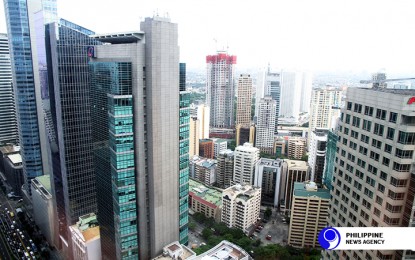
(File photo)
MANILA – An economist discounts any change in Bangko Sentral ng Pilipinas’ (BSP) policy rates this month despite the above-target inflation rate last January, citing a difference in several factors now compared to past breach.
The rate of price increases rose for the fourth consecutive month last January to 4.2 percent, exceeding the government’s 2-4 percent target band until 2024, due to acceleration in the prices of some food items like meat, vegetables, and fruit and fuel prices.
ING Bank Manila senior economist Nicholas Mapa, in a report, said this is the first time since 2018 that inflation surpassed the government’s target, although the factors – increasing food and fuel prices – are the same.
“We expect inflation to remain elevated in the coming months with base effects and persistent cost side pressures to force the headline close to or above the 4 percent level,” he said.
Even with the latest inflation development, Mapa does not forecast any change in the central bank’s policy stance when the policy-making Monetary Board (MB) holds its first rate-setting meet for the year on February 11 “given the fragile state of the economy with 1Q 2021 GDP (gross domestic product) expected to remain in contraction.”
He said, “BSP Governor (Benjamin) Diokno will likely look past the inflation breach given that cost side factors were the main driver and after the national government ordered price caps on pork and other meat products while also increasing pork imports to help augment domestic supply.”
“We expect BSP to refrain from adjusting policy in the near term as Diokno provides monetary support to the economic recovery with monetary authorities hoping to ride out this latest breach until supply conditions normalize in the coming months,” he said.
The government has ordered a 60-day price cap on the prices of meat products in Metro Manila starting February 8.
Under Executive Order (EO) No. 124, issued last February 1, the mandated price ceiling for a kilo of kasim (pork shoulder) or pigue (pork leg) is PHP270 while it is PHP300 per kilo for liempo (pork belly).
Relatively, the price ceiling for dressed chicken is PHP160 per kilo.
Mapa expects a different response from the BSP this time vis-à-vis the previous inflation breach, citing that “unlike the 2018 episode, the PHP (Philippine peso) is on much more solid footing which could help mitigate inflationary pressures at least for imported items.”
To date, the peso is among the strongest currency in the region at its current 48-level against the US dollar.
“Thus, we expect the 2021 inflation breach episode to differ slightly from 2018 with monetary authorities utilizing proper communication strategies to guide inflation expectations and accommodate this cost-push inflation episode,” Mapa said.
He also noted that in 2018, the BSP did some “neutralizing policy actions”, referring to the series of policy rate hikes and the cut in the banks’ reserve requirement ratio (RRR).
BSP raised key policy rates by a total of 175 basis points to 4.75 percent in 2018 to help address the inflation upticks. It also slashed banks’ RRR by as much as 300 basis points.
Mapa said these decisions “caught the market off guard while also contributing to the confusion and inflationary expectations.”
“This time around, BSP may be more consistent with its policy messaging which would go a long way to restoring market confidence in the central bank,” he added. (PNA)
